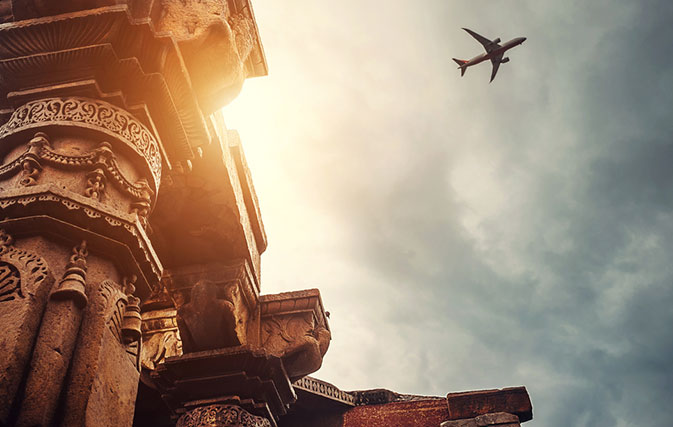NEW DELHI – India halted all visa services for citizens of Canada and told it to reduce its diplomatic staffing Thursday as a rift widened between the countries after Prime Minister Justin Trudeau said India may have been involved in the killing of a Canadian citizen.
Trudeau told Parliament on Monday that there were “credible allegations” of Indian involvement in the assassination of Sikh independence activist Hardeep Singh Nijjar, who had been wanted by India for years and was gunned down in June outside the temple he led.
Canada also expelled an Indian diplomat, and India followed by expelling a Canadian diplomat on Tuesday. It called the allegations being investigated in Canada absurd and an attempt to shift attention from the presence of Nijjar and other wanted suspects in Canada.
“Important notice from Indian Mission: Due to operational reasons, with effect from 21 Sept. Indian visa services have been suspended till further notice,” the BLS Indian Visa Application Center in Canada said. It gave no further details. BLS is the agency that processes visa requests for India.
In 2021, 80,000 Canadian tourists visited India, making them the fourth largest group, according to India’s Bureau of Immigration.
Indian External Affairs Ministry spokesperson Arindam Bagchi confirmed a temporary suspension of all visa services for Canadians, including e-visas and visas issued in third countries.
“Security threats being faced by our High Commission and consulates in Canada have disrupted their normal functioning. Accordingly, they are temporarily unable toprocess visa applications. We will be reviewing the situation on a regular basis,” Bagchi told reporters.
He called for a reduction in Canadian diplomats in India, saying they outnumbered India’s staffing in Canada.
“We have informed the Canadian government that there should be parity in strength and rank equivalence in our mutual diplomatic presence,” Bagchi said.
The Canadian High Commission in New Delhi said Thursday that all of its consulates in India are open and continue to serve clients. It said some of its diplomats had received threats on social media, prompting it to assess its “staff complement in India.” It added that Canada expects India to provide security for its diplomats and consular officers working there.
Nijjar was working to organize an unofficial referendum among the Sikh diaspora on independence from India at the time of his killing. He had denied India’s accusation that he was a terrorist.
The second stage of B.C. voting on whether a Sikh homeland should be established in India’s Punjab province is scheduled to be held on Oct. 29.
The Vancouver Police Department beefed up security outside India’s Consulate after Trudeau’s announcement this week.
Const. Tania Visintin, Vancouver police media relations officer, said in a statement Wednesday that police are “closely monitoring the situation.”
“We’re doing significant work behind the scenes, which includes continuous risk assessments, with a goal of maintaining public safety and preventing violence,” Visintin said in an emailed statement.
Visintin said Vancouver police were not aware of any specific threats to Indian consular officials, but have increased their presence at the downtown Vancouver consulate.
On Wednesday, India’s External Affairs Ministry issued an updated travel advisory urging its citizens travelling in Canada and especially those studying in the North American country to be cautious because of “growing anti-India activities and politically condoned hate-crimes.”
Indians should also avoid going to venues in Canada where “threats have particularly targeted Indian diplomats and sections of the Indian community who oppose anti-India agenda,” the ministry said.
Canada has yet to provide any evidence of Indian involvement in the killing. India’s security and intelligence branches have long been active in South Asia and are suspected in a number of killings in Pakistan. But arranging the killing of a Canadian citizen in Canada, home to nearly 2 million people of Indian descent, would be unprecedented.
“No specific information has been shared by Canada on the issue,” Bagchi said. “We are willing to look at any specific information that is provided to us.”
He accused Canada of providing a safe haven for terrorists. He said India has regularly provided it with specific evidence about criminal activities by people based on its soil, but the information has not been acted upon.
Demands for an independent Sikh homeland, known as Khalistan, started as an insurgency in India’s Punjab state in the 1970s that was crushed in an Indian government crackdown that killed thousands. The movement has since lost much of its political power but still has supporters in Punjab, where Sikhs form a majority, as well as among the sizable overseas Sikh diaspora.
India’s National Investigation Agency said Wednesday it has intensified its crackdown on Sikh insurgents operating in India.
It announced rewards of up to 1 million rupees (CAD$16,240) for information leading to the arrest of five insurgents, one of whom is believed to be based in neighbouring Pakistan.
The agency accused them of extorting money from businesses for a banned Sikh organization, the Babbar Khalsa International, and of targeted killings in India. “They also have established a network of operatives in various countries to further their terrorist activities in India,” it said in a statement, without naming any country.
India accuses Pakistan of supporting insurgencies in Kashmir and Punjab, a charge Islamabad denies.

